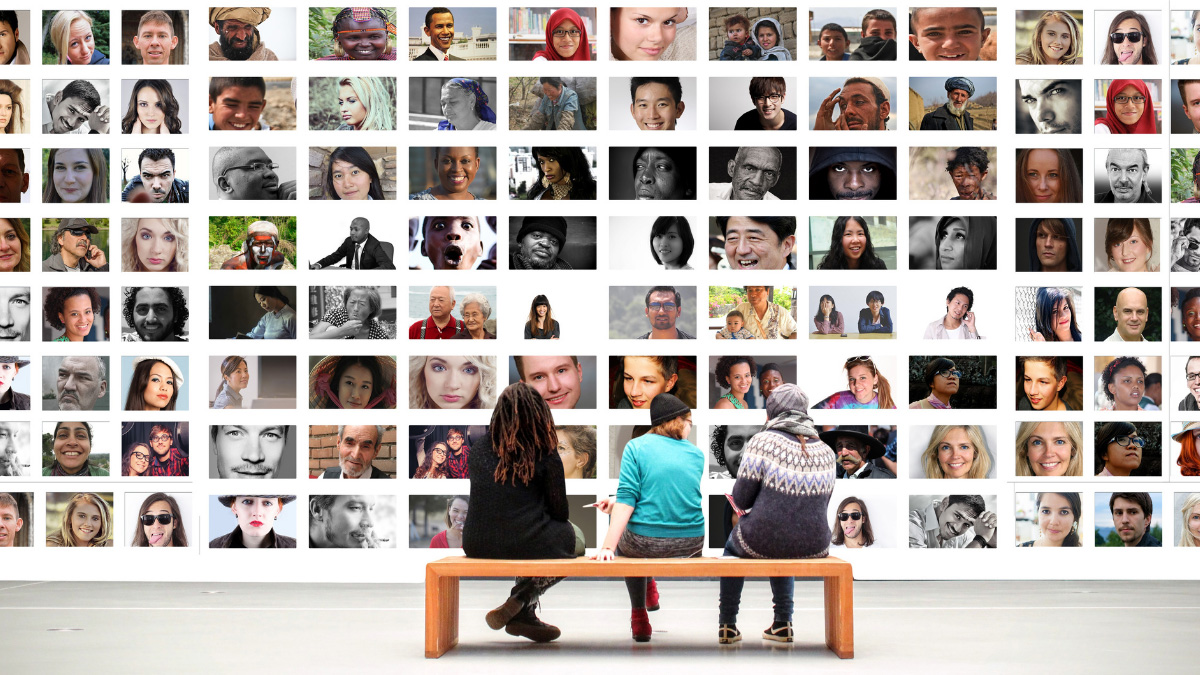 What has diversity ever done for us?
What has diversity ever done for us?
Does the IFoA really need a Diversity, Equity and Inclusion (DEI) Strategy? After all, isn’t this an employer issue where we already have equal pay and opportunities by law? Surely that’s enough. And in any case, “What has diversity ever done for us?”
Well, diverse inputs and perspectives help actuaries understand and navigate future uncertainties, which lies at the core of actuarial work. Having access to different perspectives and challenges greatly improves our ability to understand the plurality of future scenarios and outcomes.
“OK, so diversity helps us understand the plurality of future scenarios and outcomes which is at the core of actuarial work, but what else has it ever done for us?”
Diversity is the key to mitigating groupthink. Groupthink is a core risk highlighted in the JFAR Risk Perspectives. Groupthink can lead to failures to identify systemic risks, particularly the potential impacts from interconnectivity or fast-changing influencers such as technology. Furthermore, diversity is a fundamental part of building tools such as cognitive analysis, which is invaluable in identifying emerging risks and cascading effects.
“Yes, but other than helping us understand the plurality of future scenarios and outcomes, mitigating groupthink, and helping identify emerging risks, what has diversity ever really done for us?”
There is the greater access to talent. “Sorry?” Well, employers and the profession gain from the access to a greater pool of talent. As a small, intellectually-demanding profession, we need to attract talented individuals from the widest pool of potential. We will lose the ‘war for talent’ if our future leaders are more attracted to other employers and professions that are seen as safer and more welcoming. What’s more, productivity improves in places that encourage ‘all the talents’ to bring their true selves and the gifts they have. So inclusive diversity leads to improved company performance, which rewards staff and owners.
“OK, OK, but other than helping us understand the plurality of future scenarios and outcomes, mitigating groupthink and helping identify emerging risks, giving access to greater pools of talent and improving productivity and company performance, what can we truly say that diversity has ever done for us?”
Diversity provides a societal benefit aligning with our public interest. Not only is there a moral case rooted in principles of justice and fairness, but more equality also leads to improvements in productivity, mental health and life expectancy. The Equality Trust highlighted a potential for £39bn annual gain for the UK alone. Embracing diversity is also what global regulators now expect and an increasingly important part of our social licence to operate.
“But to take a step back, other than helping us understand the plurality of future scenarios and outcomes; mitigating groupthink and helping identify emerging risks; giving access to greater pools of talent and improving productivity and company performance; providing a social benefit aligned to the moral case with improvements in productivity, mental health and life expectancy; being what regulators now expect and an increasingly important part of our social licence to operate, can we find anything that diversity has ever done for us?”
Diversity helps advance your career. Globalisation and the ‘war for talent’ mean that managing diversity is becoming critical in all workplaces. Fluency in diversity – being able to include different teams, skills, and perspectives – is a significant career differentiator. This is particularly true for actuaries. Our roles are increasingly moving from groups of computational specialists to ones that embrace multi-disciplinary teams. And this impact is magnified for those progressing to senior levels and the increasing numbers moving into non-traditional domains.
“So, is that it then?
Other than helping us understand the plurality of future scenarios and outcomes which is at the core of actuarial work; mitigating groupthink and helping identify emerging risks; giving access to greater pools of talent, improving productivity and company performance; providing a social benefit aligned to the moral case with improvements in productivity, mental health and life expectancy; being what regulators now expect and an increasingly important part of our social licence to operate, and advancing your career, can any of us provide clear examples of what diversity has ever done for us?”
This is just a summary. There are more details within the DEI Strategy. It also includes further rationale along with a strategy on how we, individually, as a profession and as a professional body, can strengthen our diversity, equity and inclusion.
So the only question remains: are your colleagues, your teams, your workplace, your profession diverse enough to be taking full advantage of all these factors?* And if not, to engage and benefit from the support and guidance that the IFoA DEI Strategy will create. I particularly encourage reflecting on the role of equity and inclusion to empower diversity.
*PS The answer is that you and the profession aren’t.